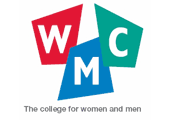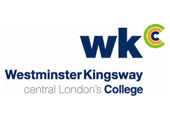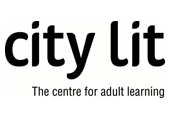Access keys
Search Skip navigation
Molenet - Working Mens College
Year 3: The ESOL MoleMentor Project 2009/2010




Project Description
Project to involve college based and community based learners, with the opportunity for learners from different organisations to communicate with one another as part of the project, ('bridging' Camden). MoleMentors (younger learners) to be trained to assist older/less confident learners (1 mentor for every 3 mentees) and share their learning experiences with each other. It will provide London based learner’s broader networking and social learning opportunities using rural and urban context with learners from North Herts College. A group of trainee teachers will trial particular devices in their practice to assess the potential of mobile devices with adult learners.
Aims
The MoleMentor project will develop sustainable model for effectively using mobile technology through an informal approach. Supported by their teachers more confident students mentor small groups (1 mentor, 3 mentees) of less confident learners, enjoying exciting collaborative learning experiences and exploring the use of different tools. It will create and deliver 320 MoleMentor/MoleMentee 'toolkits' through 4 Camden providers. Each toolkit consists of: a MoleMentor, 3 MoleMentees, 4 devices (e.g. Netbook/PDA), 4 digital sound recorders, collaborative learning training, technical training, access to MoleMentor network, support and delivery content, targets for teaching and learning outcomes, 1 MoleTeacher per 3-4 MoleMentor/MoleMentee sets.
Objectives
The project will develop a learner led personalised learning model in which more confident learners teach less confident learners the use of technology, supervised by their teachers, they collaboratively develop their English language skills. M-learning devices will enable more learners to access resources and personalise their own learning. It will create an environment where the use of devices will address different learning styles and improve learner engagement, encouraging learner autonomy:
Project start
Install, configure infrastructure and equipment
Prepare toolkits, install software and learning content
Selection of participating groups (20) and recruitment of MoleMentors (80), MoleMentees (240) and MoleTeachers (20) by consortium partners to include college and community based classes, family learning groups
Induction and Mentoring Training for MoleMentors, MoleMentees and MoleTeachers
Project launch Conference -
Briefing for MoleMentors, MoleMentees and MoleTeachers
320 MoleMentors and MoleMentees receive toolkits
MoleTeachers receive M-learning devices (1 Netbook, Digital recorder per
MoleTeacher)
Training workshops for MoleMentors, MoleMentees and MoleTeachers from Working
Men's College, Westminster Kingsway College, Camden ACL, City Lit
Develop mobile learning content to support mentoring process
Develop networks of learners from London Colleges and North Herts College (NHC is willing to share their experience and good practice developed through Phase 1 MoleNet project and offer their learners the opportunity to develop their language skills through network approaches, engage about 20 learner ), a non-funded partner, to explore the use of different devices to develop communication skills and exchange information.
Ongoing support for MoleMentors, MoleMentees and MoleTeachers - collaborative system (Coordinators or/and e/M-learning Champions, technical support)
Collate and review feedback from MoleMentors, MoleMentees, MoleTeachers, Middle Managers and Senior Managers
Practitioner research relating to pedagogical practice and learning experience
Opportunities for reflection, gathering and using feedback in applying learning by making necessary changes
Pilot the implementation of 'Generator Tool' in at least two participating organisations
Evaluation phase
Write report with feedback on experience, lessons learned - Working Men's College, Westminster Kingsway College, Camden ACL, City Lit
Sharing good practice event involving funded and non-funded partners
Target audience:
Main and secondary
Adult ESOL learners who have poor English language skills improving language skills to enable themselves to get jobs so that they can be integrated into local community. They either attend onsite or community based classes as their first step into learning. The groups are mixed in terms of gender, ethnicity and cultural diversity. Most of the community based groups include women who also need to develop their confidence alongside their English language skills.
Partners
Westminster Kingsway College, Camden ACL and the City Literary Institute